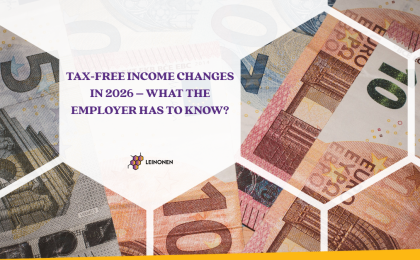Compensation is not the employer’s obligation, but an option. It is an agreement between the employer and the employee. Clearly, no law can force employees to exercise or play sport, but laws can be used to encourage people to exercise and make healthy lifestyle choices.
Until then, the employer can pay expenses incurred in improving employees’ health tax-free if the expenses are compulsory on the basis of the Occupational Health and Safety Act. Such expenses include the costs of medical examinations for employees, personal protective equipment as required by the nature of the work and cleaning and washing means if the nature of the work requires them. Pursuant to subsection 32 (2) of the Income Tax Act, these costs are considered to be expenses related to business.
The tax-free limit on the compensation of sports expenses up to 100 euros per quarter is per employee and cannot be transferred to another employee or to the next calculation period.
Only participation fees that are related to public sports events that everyone can participate in are not taxed as fringe benefits. These may be series of events or individual events, but they do not include company sports days or similar events for smaller target groups, participation in which generally requires working for the employer organising the event or another relationship under the law of obligations.
Expenses related to the use of sports or mobility venues include those incurred for the use of public sports clubs and the company’s sports clubs. Since the law aims to encourage employees to exercise regularly, tax-exempt compensation cannot be paid for the short-term rental of sports venues (renting a gym for an event).
Concerning the compensation of sports expenses, the employer must obtain the consent of the employee and keep records regarding the limit. A specific procedure for keeping records has not been established. It is important that the tax authority is able to check and verify these records.




